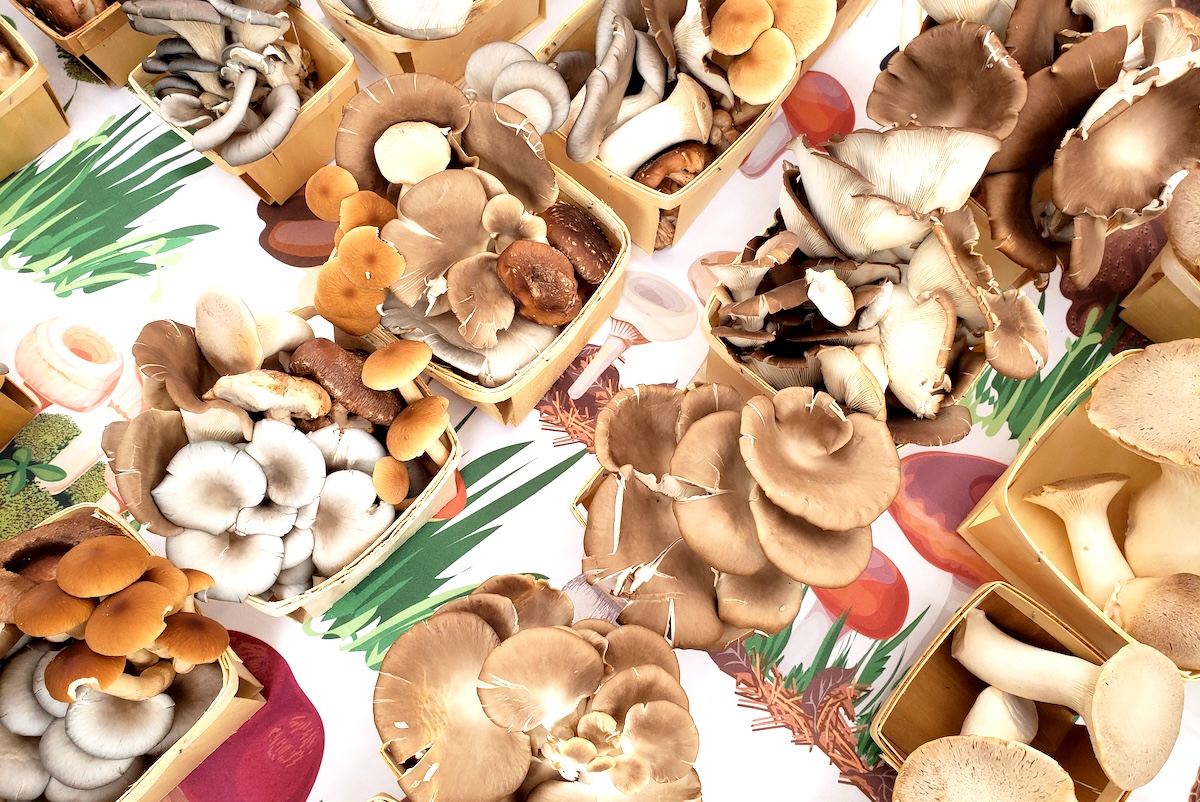We all like to think that the fancy gourmet mushrooms advertised on the menu of our favorite restaurant were foraged in the wild by a grey bearded man with a wooden cane, knee-high forester boots, and a feathered fedora.
In reality, those mushrooms were likely grown on a farm. But when we say mushroom farm it’s sometimes a climate-controlled shipping container sitting in a gravel parking lot somewhere on the outskirts of town. While this doesn’t sound as glamorous as gallivanting around the woods, the mushrooms are just as good.
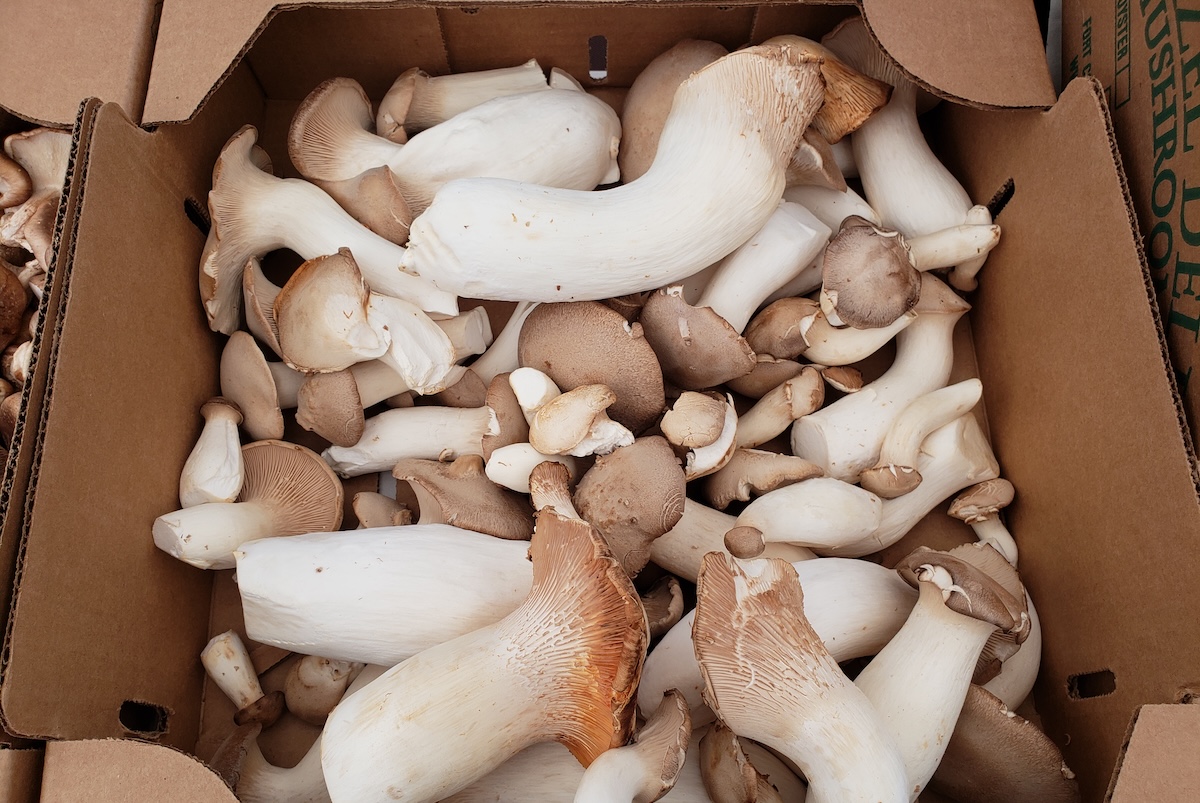
Forged vs. Farmed Mushrooms
If restaurants only had wild-foraged mushrooms to rely on, you’d likely see far fewer mushroom-based dishes and pay far more for them. Foraged mushrooms are expensive because in addition to the forager’s expertise, chefs are paying for the time, gas, and other expenses associated with harvesting fresh mushrooms from the wild. That includes those foraging trips that result in little to no harvest.
According to Coperta’s chef de cuisine Kenny Minton, that wildcard element in recent years has nearly tripled the cost.
“When I first started, we were at like $20 a pound for morel mushrooms,” he said. “This year they’re like $60.”
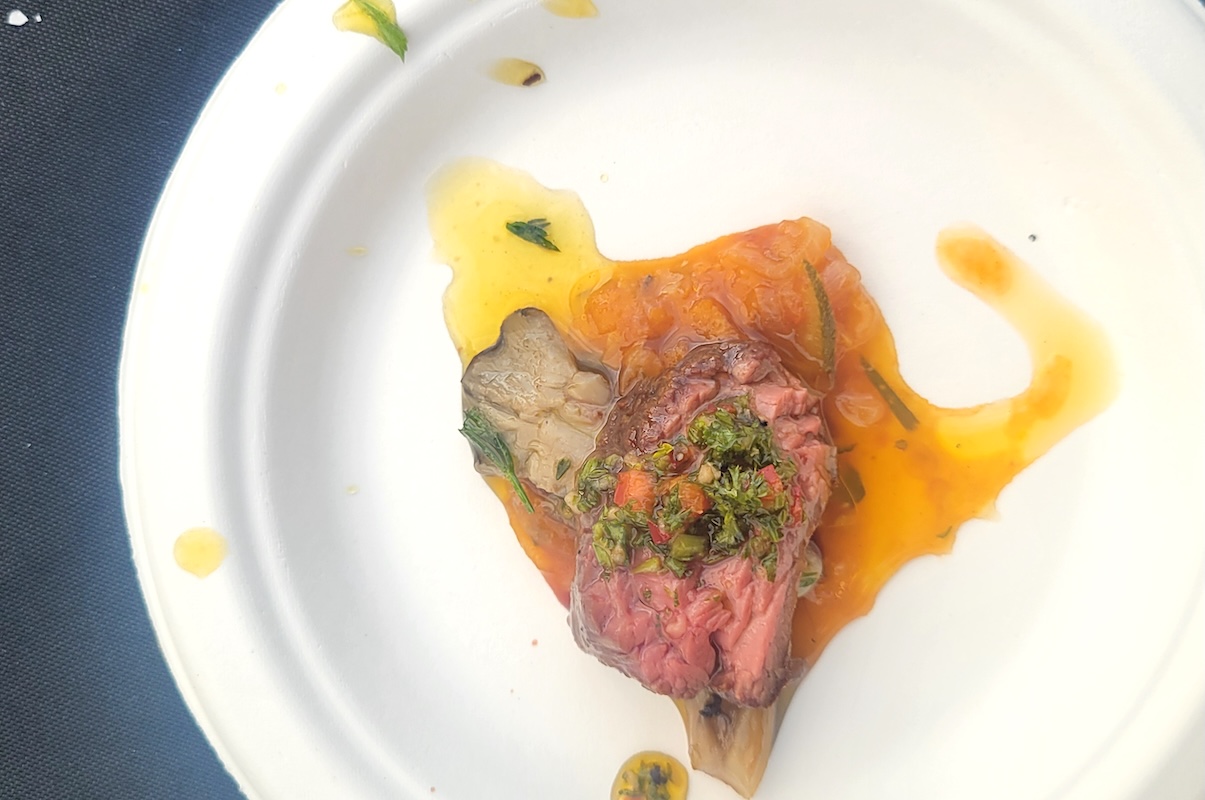
Morals, like chanterelles and truffles, can only be foraged because they grow through a symbiotic relationship with a tree’s roots, something that can’t be replicated in a mushroom farm. But the cultivated alternatives come pretty close.
“You have to balance what a dish needs,” Minton says. “Does it need $60 morels, or can I get the same effect of the mushroom flavor coming through using something like a cultivated chestnut mushroom? It’s not necessarily the same thing, but I can’t charge $50 for a bowl of pasta.”
Farm Fresh Mushrooms Mean a Great Deal
Cost isn’t the only variable to consider. There’s also the matter of freshness. Mushrooms are 90% water which evaporates. So for each day mushrooms sit in warehouses or shipping containers, the drier, uglier, and less flavorful they get.
Just take a look at the mushroom section of your local King Soopers. The mushrooms you typically see in grocery stores are the more indestructible, long shelf-life varieties like button mushrooms and portabellas (which are mainly grown in Pennsylvania). Both can look and taste acceptable for weeks. But lion’s mane, oyster mushrooms, and maitakes are much more fragile and need to be used quickly.
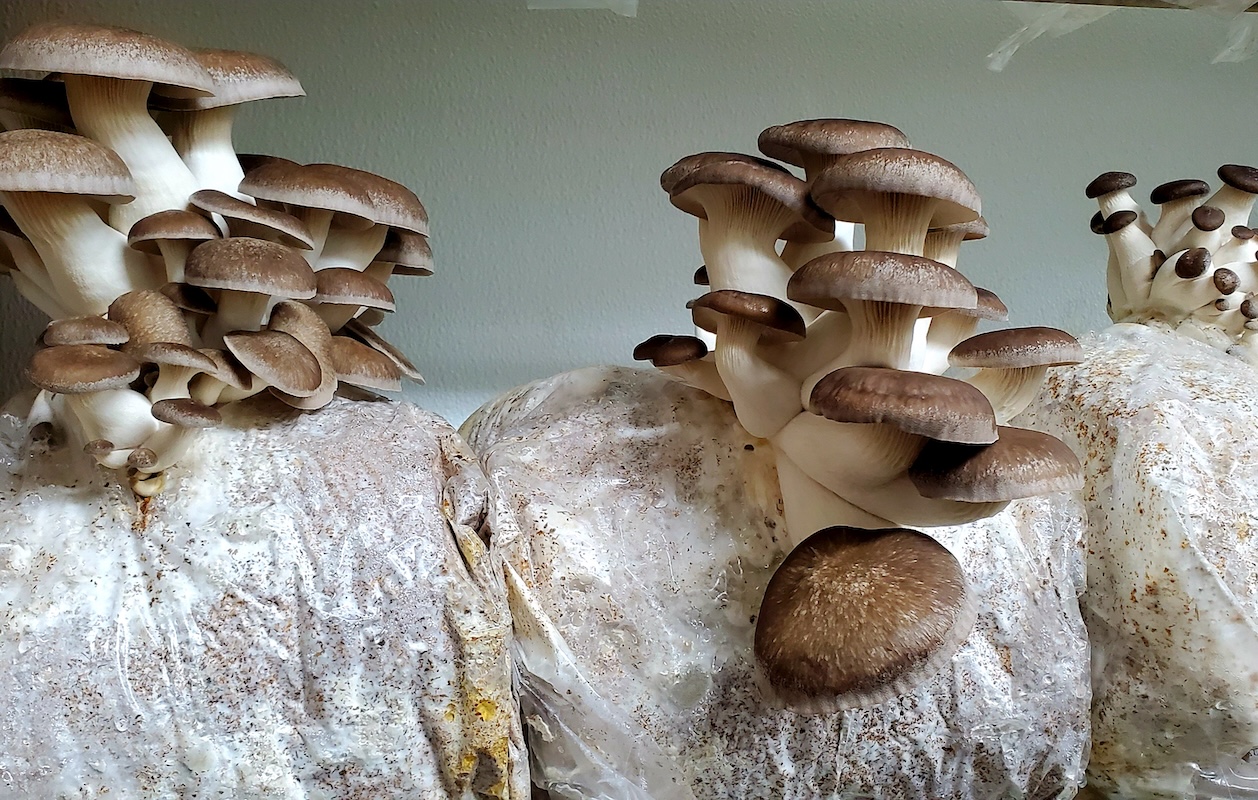
“We’re not selling carrots, right?” said Michael Nail, founder of Mile High Fungi, which, for over a decade, provided cultivated mushrooms to Denver restaurants. “When it comes to mushrooms, it’s like: Grow the mushrooms, pack the mushrooms, sell those mushrooms now, because they’re not going to look the same in a few days. So if you get these mushrooms from a local producer, they get into your walk-in faster and you may have bought yourself four or five days to utilize these products.”
Taken together, the price and freshness benefits of locally cultivated mushrooms have become an essential part of the modern restaurant business. Fortunately for Denver chefs and diners, the market for cultivated mushrooms in the Denver area has exploded in the last four years to meet that demand.
“I do think mushrooms are having a moment,” said Lucinda Womack, who took ownership of the 30-year-old Hazel Dell along with Jared Scherger. “You don’t need a lot of land. You don’t need a lot of water. They can be a little energy intensive, and that can be expensive. But I think they’re easier to grow than other things.”
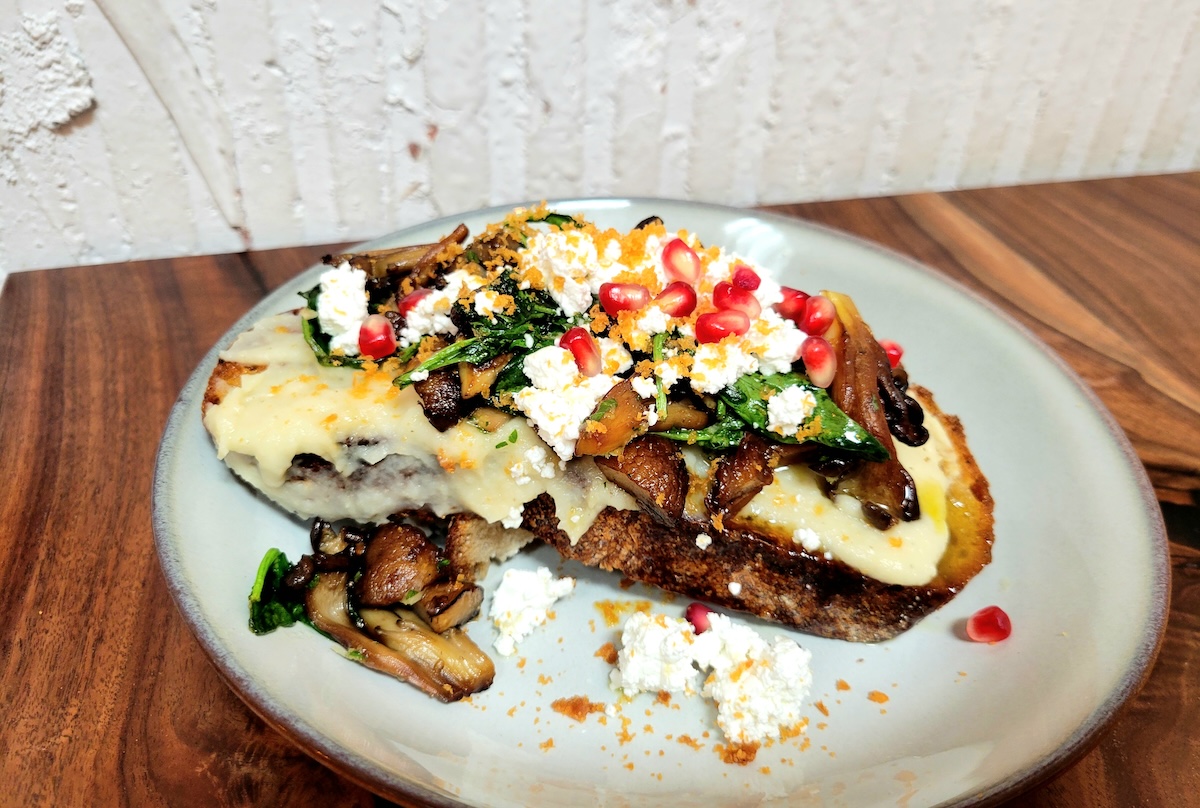
Growing Mushrooms to Meet Restaurant Demand
The ease and satisfaction of growing is what brought newcomer Cannolo Farms to Denver’s cultivated mushroom scene. Operating out of a 8×40 foot shipping container in Sedalia, Cannolo Farms produces about 400 pounds of mushrooms a week when operating at full capacity. It primarily grows chestnut, snow oyster, and lion’s mane mushrooms, but has the capacity to grow some 18 different species.
In the less than two years it’s been in business, Cannolo Farms has already made a big impact on the restaurant community. Coperta uses these mushrooms, as do Denver favorites including Barolo Grill, Table6, Hop Alley, Mercantile, Kawa Ni, Shanahan’s, Bruto, Point Easy, and even the Denver Broncos, to name a few.
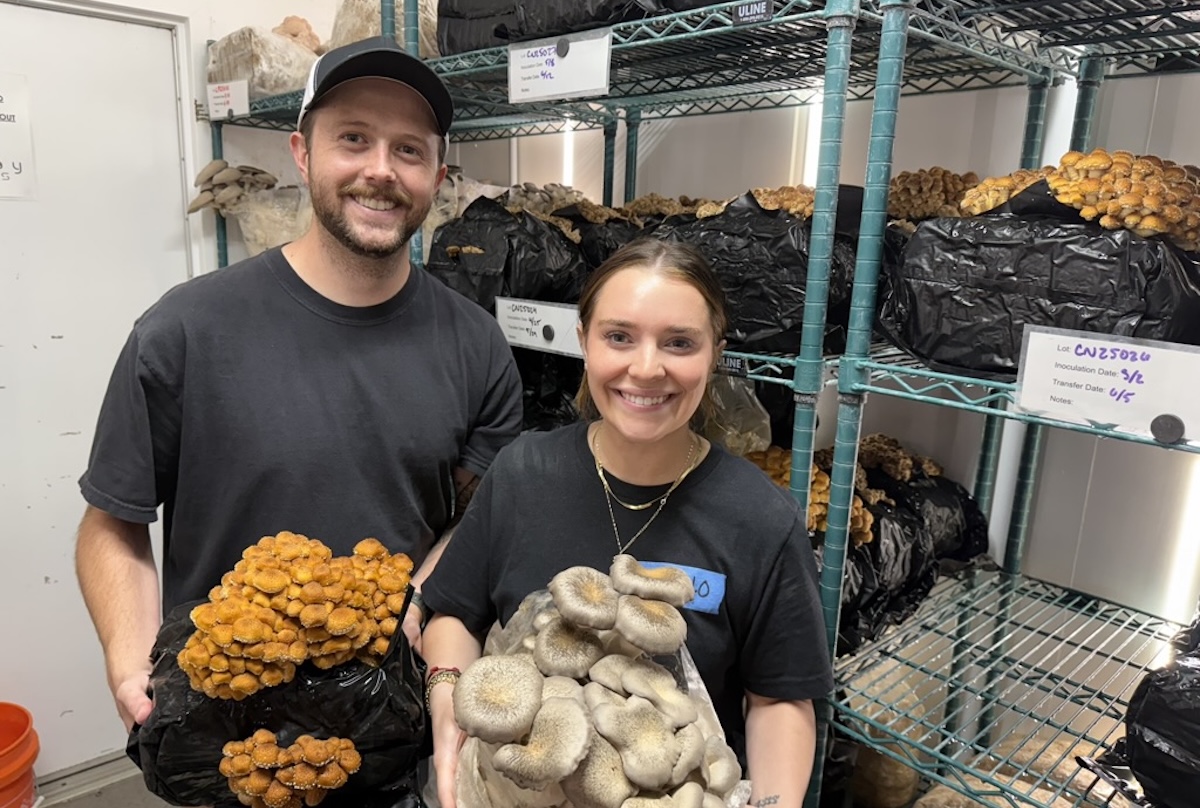
Several factors led to such a big footprint so fast. For starters, the farm was created from day one to service chefs and restaurants specifically, rather than farmers markets or consumer-based accounts, meaning they’ll grow mushrooms to a chefs’ request.
“A lot of our chefs are really specific about wanting their mushrooms harvested on the earlier side so they can use them for what they’re making, like if it’s a garnish to pickle that kind of stuff,” said Mac Paranto, head of sales and farming at Cannolo Farms, where he works with his wife Mackenzie who is COO. “But then on the other end, we have restaurants that want larger mushrooms so they can put them on a mandolin and serve them that way.”
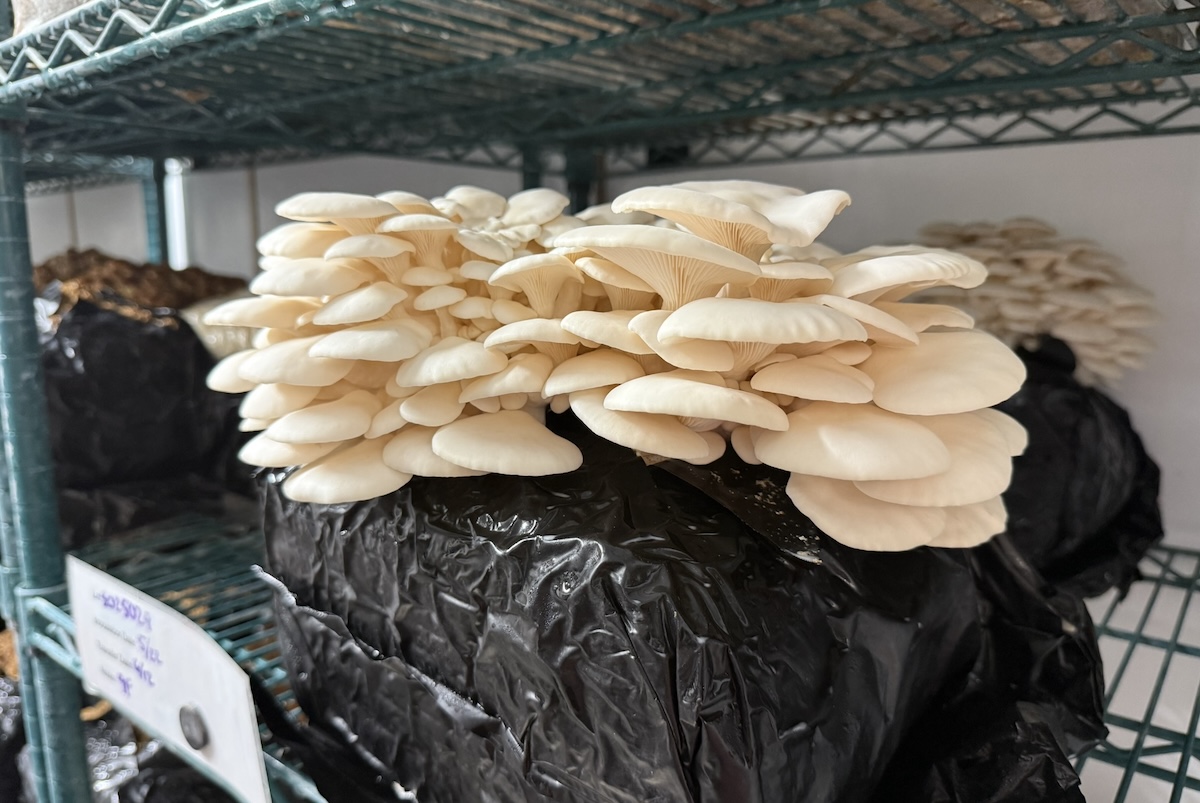
Aiding that chef-focused mentality is the family’s deep roots in the Denver restaurant industry. Mackenzie’s mother is Leigh Sullivan, of Sullivan Restaurant Group fame, who also co-founded Cannolo Farms. Her stepfather Travis Plakke has decades of experience in high-end restaurants and hospitality groups, and is CEO of Cannolo Farms.
Building a Business and Mushroom Production
Connections aside, ramping up a mushroom production business capable of serving so many of Denver’s top restaurants in such a short period of time just shows how pervasive and widespread the infrastructure and education for mushroom farming has become.
While Paranto earned a degree in environmental science and sustainability with a minor in aquaculture before starting Cannolo Farms, he admits his knowledge of mushroom farming was basically “zero.” But partner Farmbox Foods provided turnkey support, including the container, the equipment, the training, and even the land the farm sits on.

Today, Cannolo Farm’s biggest challenge isn’t knowledge or experience, but scale.
“We’ve fully maxed out our current farm,” Paranto added. “But the nice thing is that if we decide to move, all we have to do is crane the [shipping container] to a new facility and buy another Farmbox.”
Shifting From Markets to Marketing
As newcomers like Cannolo Farms and others like Jacob’s Mushrooms and Fox Fungi ramp up the restaurant supply business, old guards like Hazel Dell and Mile High Fungi are ramping down. These historically larger providers of cultivated mushrooms to restaurants started diversifying after getting burned hard during the pandemic closures, leaving a gap in the supply chain.
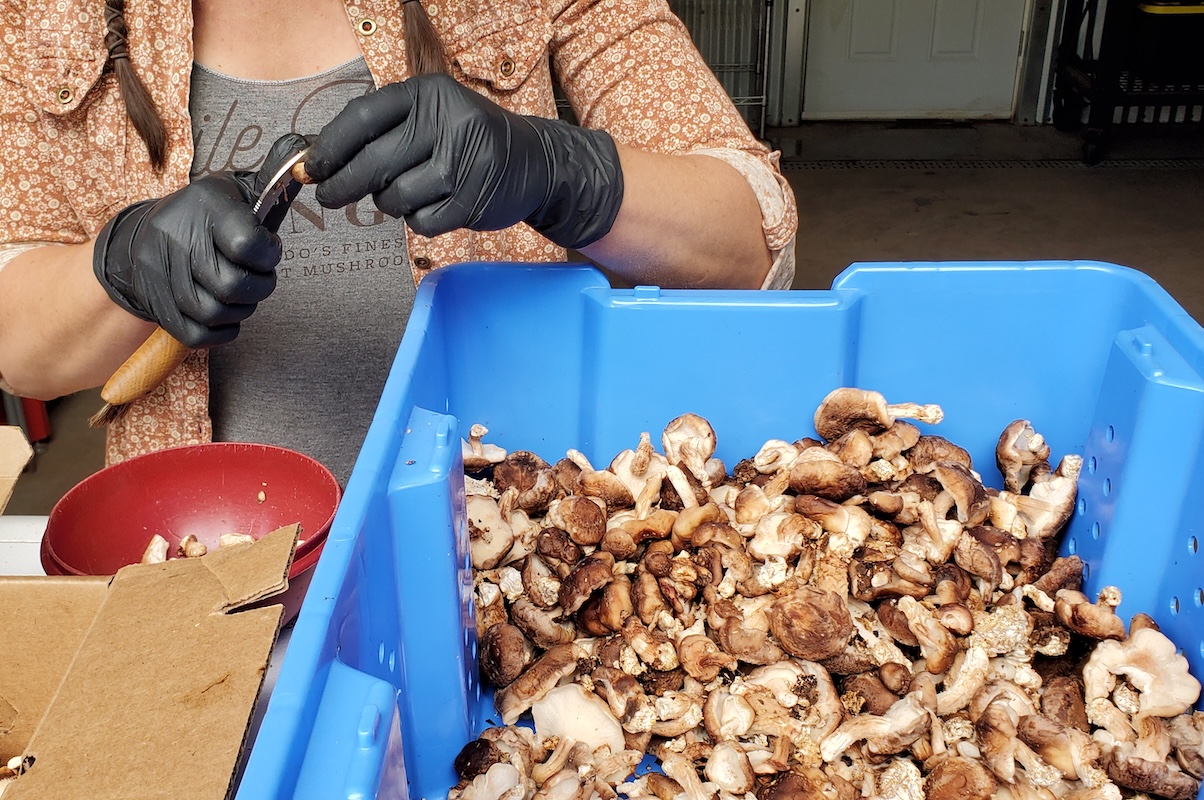
Mile High Fungi, for instance, recalibrated its business from about 70% restaurant supply to less than 5%. They’ve since pivoted to supplying replacements instead. According to Nail, 50% of the company’s business is now focused on providing either sterilized or fully inoculated and ready-to-fruit substrate that others can use to grow mushrooms on their own farms. While the farm still produces around 1,000 pounds of mushrooms a week for farmers markets, CSA programs, and a few close restaurant clients (including Restaurant Olivia and Sullivan Scrap Kitchen), it ships 7,000 pounds of materials to other mushroom farmers.
While not quite as dramatic a pull back as Mile High Fungi, Hazel Dell’s Womack said about 20% of the 4,000 to 6,000 pounds of mushrooms it produces a week goes directly to restaurants, down from over 70% pre-pandemic. Much of that pullback is due to its expanding into wholesale distribution with Shamrock Foods rather than direct-to-restaurant sales, as well as into local grocery stores.
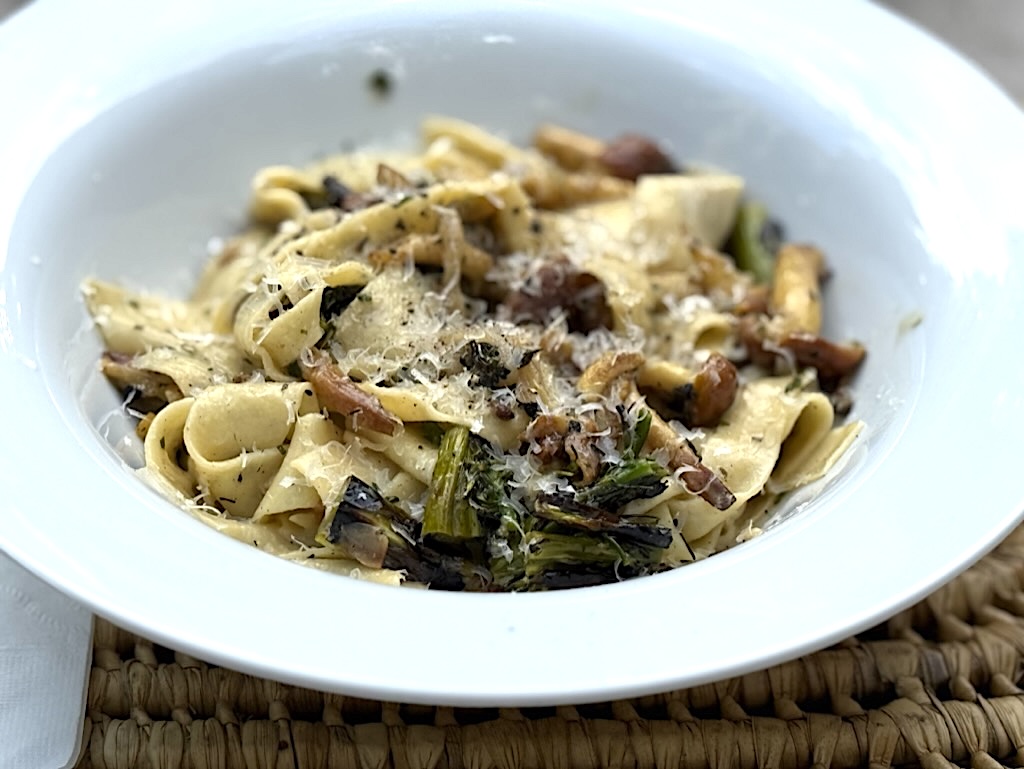
Because they’re all farmed roughly the same way, and often use the same seeding materials to get started, it’s unlikely that even the most sensitive of pallets could distinguish between the mushrooms grown at one farm over another.
But there is a huge difference between locally farmed mushrooms harvested yesterday versus those shipped in from out of state days ago. That can make all the difference between an enjoyable dish that challenges even the most stubborn mushroom holdout. They just may begrudgingly come to enjoy the fungi and break the mushroom-phobic stereotype.
So by all means, make an effort to order those mushroom dishes where the farm is advertised in the menu description. After all, it’s better to be grown in a shipping container than transported in one.
